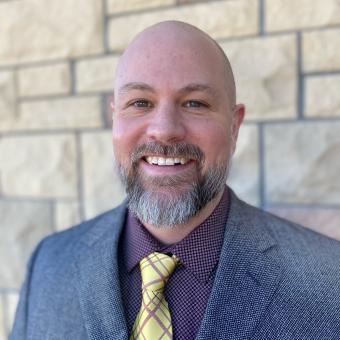Colorado School of Mines selects Carl Frick as new graduate dean
Frick has served as professor, department head of Mines Mechanical Engineering since 2021

Colorado School of Mines has named Carl Frick as its new dean of graduate studies.
A member of the Mines faculty since 2021, Frick previously served as Department Head of Mechanical Engineering, the largest academic department at Mines. Prior to joining Mines, he was Department Head of Mechanical Engineering at the University of Wyoming, where he served on the faculty starting in 2008.
As Graduate Dean, Frick will be responsible for institution-wide leadership in all areas of graduate education and graduate student scholarship, including the signature graduate student experience, fostering growth of non-thesis/professional master’s degrees and graduate certificates, and ensuring the overall academic quality of graduate programs. He officially starts in the new role on July 15.
“We’re excited to have Carl to take on this new leadership role at Mines as Graduate Dean,” said Richard C. Holz, provost of Colorado School of Mines. “He has a can-do attitude and a strong ability to engage across the university, serving as chair of the Department Head Council over the past year. His experiences as a department head also provide a solid foundation for interacting with stakeholders both on and off campus. I look forward to working with him to advance Mines@150 goals including a signature graduate educational experience.”
Frick has served in academic leadership roles for the past nine years, both at Mines and Wyoming. As Head of Mechanical Engineering at Mines, he oversaw one of the largest mechanical engineering departments in the United States with an enrollment of 1,800 undergraduate and 400 graduate students (both Mechanical Engineering and Interdisciplinary Programs). During his tenure, Frick was instrumental in reforming the master’s degree curriculum and launching the new online master’s degree.
As Department Head at the University of Wyoming, a position he held for six years, Frick was responsible for both the Mechanical and Energy Systems degree programs. He also implemented a departmental strategic plan, which included a new graduate-level assessment process.
Frick, who grew up in Colorado Springs, holds a PhD and bachelor’s degree in mechanical engineering from the University of Colorado Boulder and conducted postdoctoral research at the Max Planck Institute in Stuttgart, Germany. He is the co-holder of four U.S. patents and co-founder of Impressio Tech, which is developing liquid crystal elastomers for biomedical and safety applications.
“It’s a really exciting time in graduate education both for Mines and nationally,” Frick said. “Mines has had a number of interdisciplinary graduate programs emerge in the last several years, as well as online programs – both of these distinguish our university and also require nurturing and oversight. I’m excited to be involved in growing the quality, breadth and enrollments of these programs.”
As Graduate Dean, Frick will also lead the Office of Graduate Studies, which provides academic and administrative support to all Mines graduate programs and students. He succeeds Tim Barbari, who has held the role since 2020 and is transitioning to a full-time faculty position in the Chemical & Biological Engineering Department at Mines.
Frick said his top priority as Graduate Dean will be bolstering the Mines signature graduate student experience – what makes Mines unique and distinguished and special for master’s and PhD students.
“It’s extremely important to not only provide our students with a cutting-edge technical education but also to consider how to prepare them for the next step in their career. Aspects like communication skills, professional development and networking, and ethics are just a few examples,” Frick said. “The challenge is that our graduate students vary from newly completed undergraduates to seasoned working professionals with years of experience. Career aspirations can range from engineering management to research scientist. We can’t treat all our graduate students the same – we have to meet the students at their level. The signature experience is going to be different for these categories of students, and establishing this will be a big part of our vision for the next year.”




